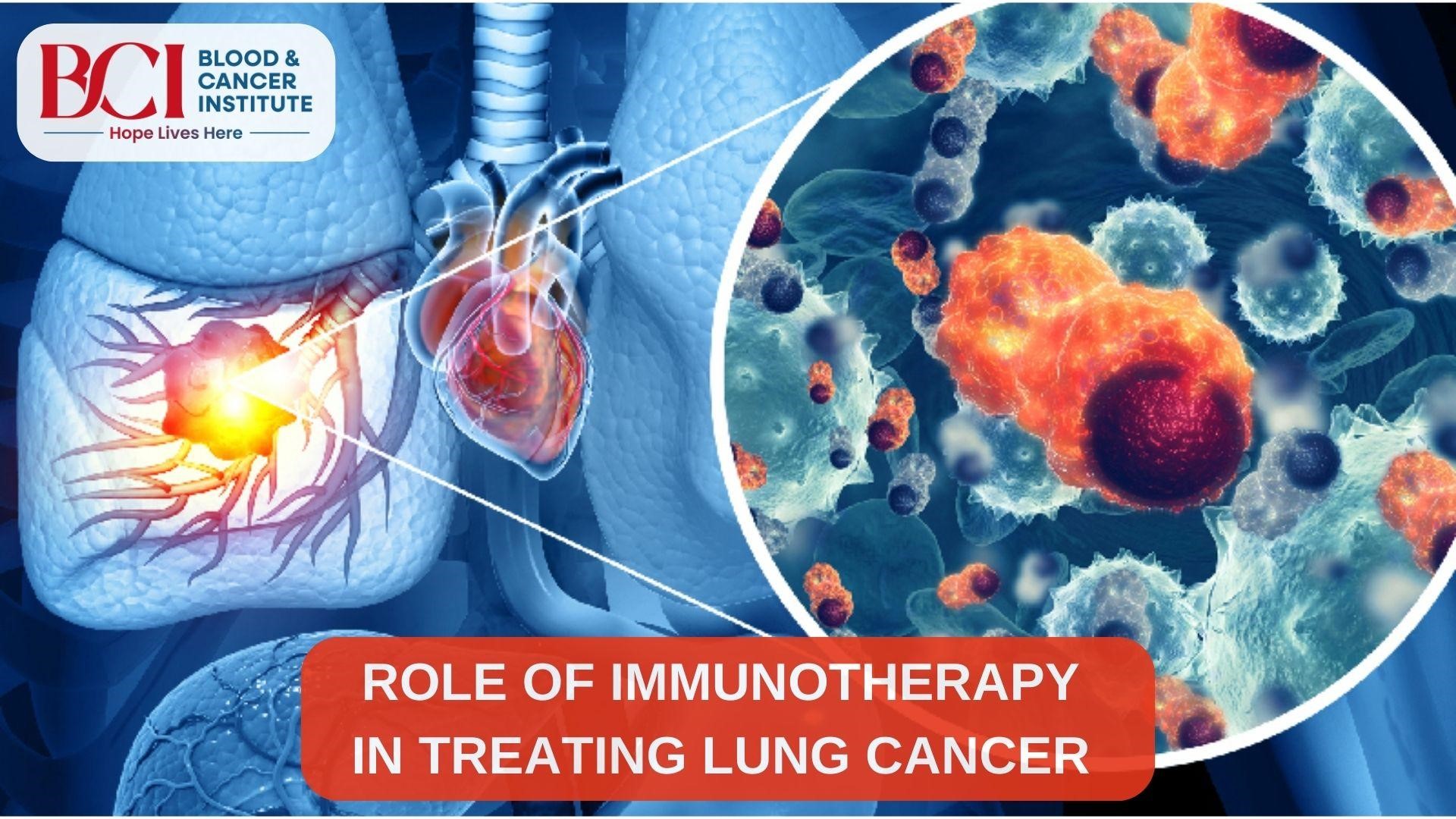
- By : [email protected]
- General
- Comments: 0
The Role of Immunotherapy in Treating Lung Cancer
Lung cancer remains one of the most common and challenging cancers to treat, but recent advancements in immunotherapy offer new hope for patients. Unlike traditional treatments such as chemotherapy and radiation, which target cancer cells directly, immunotherapy channels the power of the body’s immune system to fight the disease, explained our lung cancer specialists in Surat . For many patients, this innovative approach can make a significant difference in outcomes, offering not only improved survival rates but also a better quality of life.
What is Immunotherapy?
Immunotherapy is a type of cancer treatment that stimulates the immune system to recognize and destroy cancer cells. Normally, our immune system is adept at identifying and eliminating harmful invaders like bacteria and viruses. However, cancer cells have ways of evading detection by the immune system, allowing them to grow unchecked. Immunotherapy works by boosting the immune system’s natural ability to detect and attack these rogue cells.
Our Cancer specialists in Surat at BCI- Blood and Cancer Institute, remark that, “Unlike chemotherapy or radiation, which indiscriminately target fast-growing cells, immunotherapy is more precise. It focuses on enhancing the immune system’s response specifically to cancer cells, minimizing damage to healthy cells. This precision often results in fewer and less severe side effects compared to traditional treatments.”
How Immunotherapy Treats Lung Cancer
In the context of lung cancer, immunotherapy has become a game-changer, especially for patients with advanced-stage disease. One of the most common forms of immunotherapy used in lung cancer treatment is known as immune checkpoint inhibitors. These drugs target proteins that act as “brakes” on the immune system. By inhibiting these checkpoints, the drugs essentially release the brakes, allowing the immune system to go after cancer cells more aggressively.
Several immunotherapy drugs have been approved by the FDA for treating lung cancer, including pembrolizumab (Keytruda), nivolumab (Opdivo), and atezolizumab (Tecentriq). These drugs have been shown to be effective in improving survival rates in patients with non-small cell lung cancer (NSCLC), the most common type of lung cancer.
Benefits of Immunotherapy
One of the most significant benefits of immunotherapy is its potential to provide long-term remission for some patients. Unlike chemotherapy, which may only work temporarily, immunotherapy can offer durable responses that last for years, even after treatment has ended. This is because the immune system, once activated against cancer cells, can continue to recognize and attack them over time.
Another advantage, as pointed out by the expert doctors at BCI — one of the best cancer hospitals in Surat, is the relatively mild side effect profile. While immunotherapy can still cause side effects, they are often less severe than those associated with chemotherapy. Patients might experience fatigue, skin reactions, or flu-like symptoms, but serious side effects are less common.
Who Can Benefit from Immunotherapy?
Not all lung cancer patients are candidates for immunotherapy. Eligibility often depends on specific biomarkers, such as the expression of PD-L1, a protein found on cancer cells that helps them hide from the immune system. Patients whose tumours express high levels of PD-L1 are more likely to respond well to immunotherapy.
Additionally, immunotherapy is typically used for patients with advanced or metastatic lung cancer, where other treatments might have limited effectiveness. However, ongoing research is exploring its use in earlier stages of the disease as well.
Side Effects and Considerations
Immunotherapy is used as a cancer treatment in Surat and is generally well-tolerated. However, the immune system, once activated, can sometimes attack healthy tissues in the body, leading to autoimmune-like side effects. These can affect various organs, including the lungs, liver, and intestines. These side effects are usually manageable with prompt medical attention and often resolve with appropriate treatment.
It’s important for patients to work closely with their healthcare team to monitor for any signs of side effects and manage them promptly. Regular follow-ups and open communication with doctors can help ensure that any potential issues are addressed early.
Conclusion
Immunotherapy has ushered in a new era in the treatment of lung cancer, offering hope to patients who previously had limited options. Its ability to harness the body’s immune system to fight cancer, often with fewer side effects, makes it a promising option for many. If you or a loved one is facing lung cancer, it’s worth discussing with your healthcare provider whether immunotherapy might be a suitable treatment option.
By staying informed and working closely with your medical team, you can make the best decisions for your health and take advantage of the latest advancements in cancer treatment.
